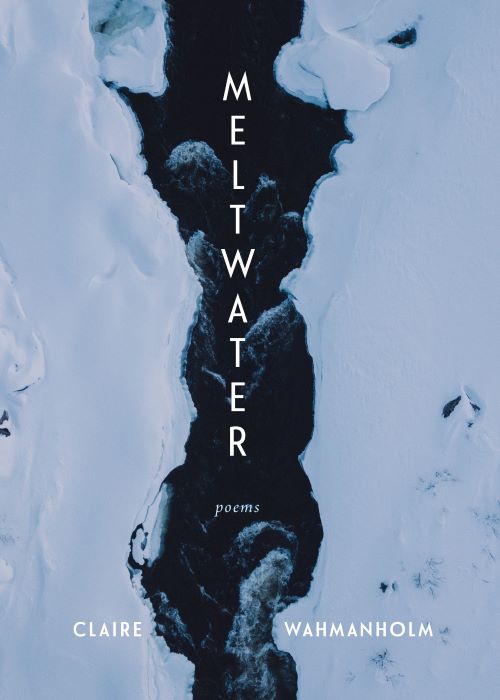I love writing abecedarians. I love that they make me reach for words I would not ordinarily reach for; I love that they gesture at abundance without exhausting it, that they leave more unsaid than said. I love that they open the doors of my existing knowledge and invite me into the dictionary, the thesaurus, the encyclopedia, any number of archives. I love how democratic they are: even the trickiest, least common letter must be used, and the heavy hitters may only appear once. An abecedarian is like a slice of meadow, a tablespoon of deep ocean water, a blink of a rainforest canopy—it is simultaneously lush and contained, dense with possibility.
There’s a lot of death anxiety in Meltwater—a lot of thinking toward future losses. But I hadn’t done a lot of thinking around the millions species that have already gone extinct since life on Earth began. Throughout the book I had been including the specific names of living species, and treating those with as much detail and care as possible, but I felt it was equally important to spend time with those species that have left us forever. As I had the idea for “Deathbed Dream with Extinction List,” I realized that I couldn’t think of one extinct species per letter of the alphabet. I had to look up and get the character of each of the species that appears in the poem. Doing that research really felt like an act of care, an act of recovery.
When I write abecedarians I am reminded of how much of my lived experience is structured by language; it is not dissimilar to how our earthly existence is structured by the natural world. The death of a human individual is necessarily bound up with the death of animal species—I wanted those things to parallel each other.
While a traditional abecedarian in only twenty-six lines, I wanted “Deathbed Dream” to be longer —I wanted it to take as long as it was going to take. In this case, the abecedarian’s compression wasn’t a useful thing. After all, I was bringing these species out into the light again, I was giving them time. It felt important to be leisurely about it.
In my research around deathbed dreams, I found a few recurring threads: for example, that people who experience deathbed dreams almost always report being visited by loved ones who have preceded them in death. That they often report those loved ones touching them—on the arm, on the head, stroking their hair or their hands. That these visits are overwhelmingly positive experiences—moments of reunion, moments of comfort and fellowship. And I was wondering what would happen if those visitors included extinct animal species as well as human loved ones—if we were, in fact, held by a much larger community than my human-centric worldview had been letting me imagine. What would happen if we saw death as a potential moment of reunion across time and species; a porosity; a blurring of boundaries; a fertile space? If we saw death not just as an ending, but also as a door into a kind of richness you can’t have while alive.




